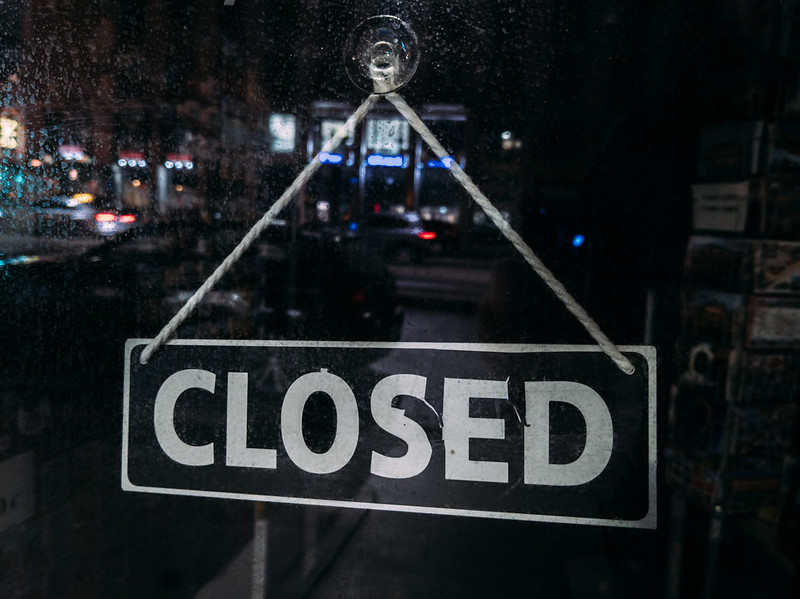In New York City, a center for people experiencing homelessness may have to shut down. Local lawmakers have chosen not to renew the contract that enables the facility to provide food, water, showers and emergency beds. It’s just one example of a national trend, as cities slash funds and close centers serving unhoused people, while the United States’ homelessness crisis continues to worsen.
As Gothamist reported, NYC Mayor Eric Adams (D) has decided to not renew the city’s contract with MainChance, a drop-in center in midtown Manhattan run by the Grand Central Neighborhood Social Services Corporation.
The center has operated for over 30 years. Its services include three meals a day, overnight shelter, medical care, case management and help finding permanent housing. According to MainChance, it has served 25,000 people in the past year. Since the COVID-19 pandemic, it has helped 300 people find a permanent home.
The decision has attracted political opposition. Lawmakers including City Councilmember Carlina Rivera (D), US Representative Jerry Nadler (D) and Manhattan Borough President Mark Levine (D) have written to the Adams administration, asking it not to end the contract when doing so will leave people “stranded without the services they have come to rely on, and destabilize their path to permanent housing.”
The city contract accounts for 90 percent of the center’s funding—so with that set to expire on June 30, it’s an existential crisis.
Brady Crain, the center’s executive director, told Filter that the site has always had support from local lawmakers. MainChance works with local businesses and city agencies, and even with schools, through its cultural and arts programming. Crain said the organization maintains a good relationship with its landlord, who agreed to help it transition from a shelter to a safe haven. But the city contract accounts for 90 percent of the center’s funding—so with that set to expire on June 30, it’s an existential crisis.
Asked if any previous mayor objected to the center’s work, Crain said, “No, not at all. All the administrations have blessed our work and partnership.” Councilmember Rivera has visited the site, he said, as has former Manhattan borough president and current Councilmember Gale Brewer (D). But he has never been visited by any mayor, nor by the director of the city’s Department of Homeless Services.
“I haven’t had anything in writing,” he said of the decision, “except a phone call from [an administrator] and a closing letter, describing the logistics and the details—and the final line, ‘get out’.”
In a copy of the letter shared with Filter, a Department of Homeless Services representative wrote, “It is imperative to ensure that the transition of services and relocation of clients to new temporary housing locations be orderly and seamless so as not to detrimentally affect the vulnerable population which we serve under the contract.”
Crain said he intends to fight the decision.
The national homelessness crisis is growing. According to the federal housing department, a record 653,100 people were unhoused on any given night in 2023—about 70,000 more than in 2022. And about two in five of those people are unsheltered, living on the streets, in parks or in their cars.
The US Supreme Court is meanwhile hearing a pivotal case that will decide whether or not governments can legally raid and evict unhoused people from encampments, if they have nowhere else to go.
“We shouldn’t be shutting down facilities, we should be building more.”
Donald Whitehead Jr., executive director of the National Coalition for the Homeless, told Filter that the situations like that in New York have been seen in numerous other cities, hurting prospects of getting people housed.
“If you’re closing down facilities, it’s going to make the job that much harder,” Whitehead said. “We shouldn’t be shutting down facilities, we should be building more. It doesn’t seem like the right time to be reducing available options for people to get shelter.”
Officials in Washington, DC, for example, have closed converted hotels that were being used as shelters, while escalating operations to clear encampments. In Los Angeles, police and city agencies have also targeted encampments, forcing people to move their tents to another block but not offering them shelter or services—in what one resident called “whack-a-mole.”
Whitehead noted that even when homelessness services do receive city funding, they are often the first to get cut when lawmakers look to make savings. “Programs for poor people and people experiencing homelessness have often been the target for mayors that want to balance their budget, the first target in many cases,” he said. “Those same mayors will provide millions in tax incentives to millionaires and billionaires.”
Shutting down shelters and other services can end up costing cities more money in the long run. When people lose access to food, health care, beds and people who care for them, consequences include more costly ambulance rides, hospital visits, arrests and court proceedings. In 2017, the National Alliance to End Homelessness estimated that a person who is chronically unhoused costs taxpayers over $35,000 each year, whereas providing that person with supportive housing cuts those costs in half. A systematic economic review, published in 2021, also found that housing people in the US and Canada reduces public expenditure.
Among many other harms, mass homelessness exacerbates the overdose crisis.
“When you don’t have adequate shelter, your mortality rate increases,” Whitehead said. “The need for medical services increases, law enforcement, mental health, all those numbers go up.”
Photograph by Ivan Radic via Flickr/Creative Commons 2.0





Show Comments